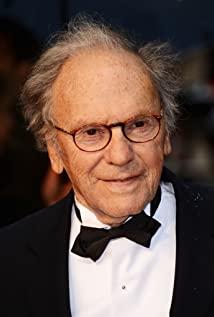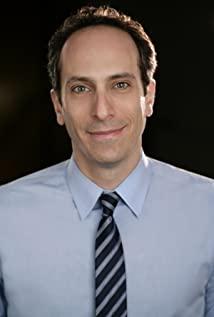Harold is an extremely ordinary man in the city. He meets the same people and does the same things at the same time every day. He does not enjoy this kind of life, but he is unwilling to change this overly regular life. , most of us think of Harold, although certainly not like him to brush the toothbrush several times and calculate how much time it takes, but most of us repeat it every day, even where we think about something, It seems that we are dominated by an invisible Karen, we seem to be a speck of dust in our destiny, although small, but controlled from beginning to end. The helplessness of life seems to be reflected in Harold. Precisely because Harold has lived most of his life and has not found the beauty of life, so when he heard Karen say that he would die, he showed unprecedented panic, he did not hesitate to disrupt all the schedules that had been set, to find it. cause of death. In the process of searching, he was persuaded that since he did not know that he was going to die at that moment, why not use the time to find the cause of death to do something he had always wanted to do before. So, Harold regained his childhood dream, played the guitar, and gained Anna's love. Although the time was short, he lived a happy life that was incomparable to the past. His life was no longer just lonely. The toothbrush, the watch that rings on time, the numbers and documents that he encounters every day, his life has love, friendship, dreams, and color, and it is precisely because he is looking for the cause of death, he also finds the meaning of life. Art, the beauty of life. So he no longer fears death. When he read the first draft of Karen's work about him in full, he realized that he was going to die, and that only his own death could make this poignant art possible. He cried, not because of his own death, but because he did what he wanted to do in his life but didn't do before he died. He who felt that he should die has already become a person of art. He has already Have the courage to sacrifice for art.
Besides, Anna, she seemed completely out of touch with death, but, no. She did not pay the full tax, which is a challenge to the authority of the government and her own life. You must know that in the United States, if the tax is not paid beyond a certain period, the government has the right to forcibly freeze your account. In the eyes of Americans, paying taxes is a very important thing. Anna is an anarchist, and her every behavior bears traces of anarchism. For her ideals, she gave up going to college, and for love, she loved without any regrets. She yearns for freedom, and this behavior undoubtedly brings a heavy blow to Harold's regular life. Sometimes the pursuit of absolute freedom in life is also a kind of contempt for death. For Harold, he has only two choices, either, never have anything to do with her, or, integrate into her world. Two people from different worlds meet by accident and fall in love. These unreal plots seem real and touching in the writings of female novelist Karen.
Then analyze it from the structural mode of Diang. The screenwriter skillfully adopts the way of intertwining, blending, and echoing between art and life. Originally, Harold's death was an inevitable expression of art, but in the end, he miraculously survived and lived happily. This makes art change back to life in an instant, which is unexpected. It adds a little touch to life. Life is so fragile that death will come in the next second, but life is tenacious enough to be on the verge of death at any time. pull you back. Life is fantastic. Fantastic life makes every second full of surprises, maybe the next second you will be moved by life.
View more about Stranger Than Fiction reviews











